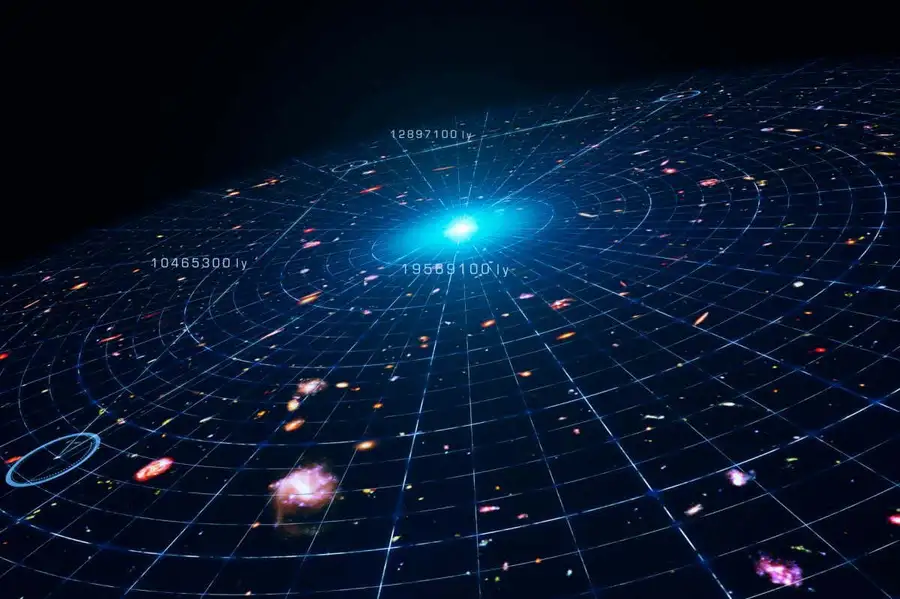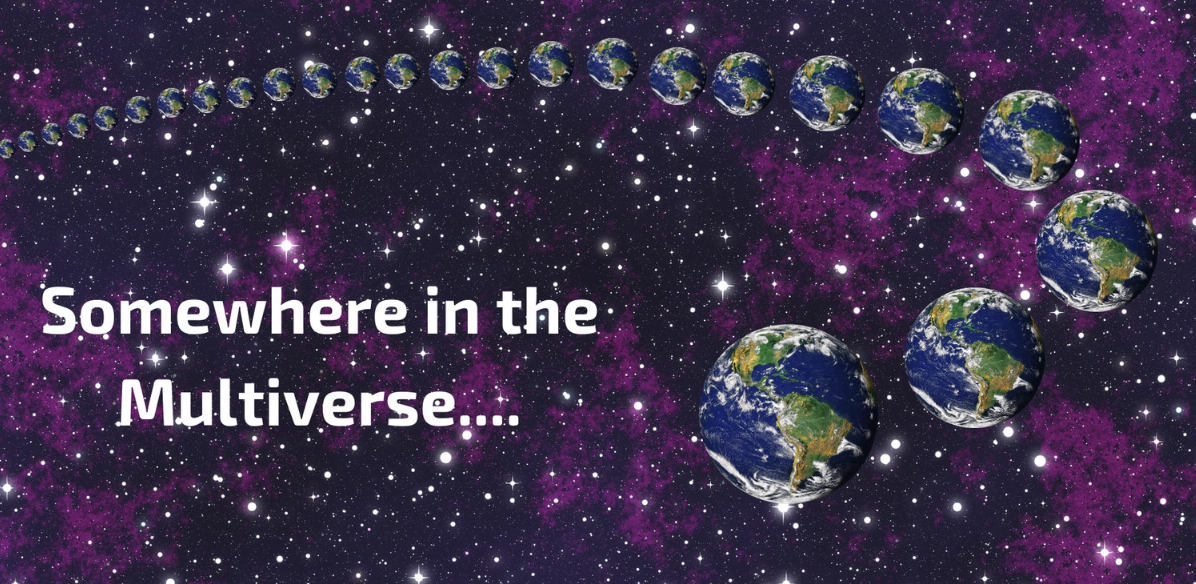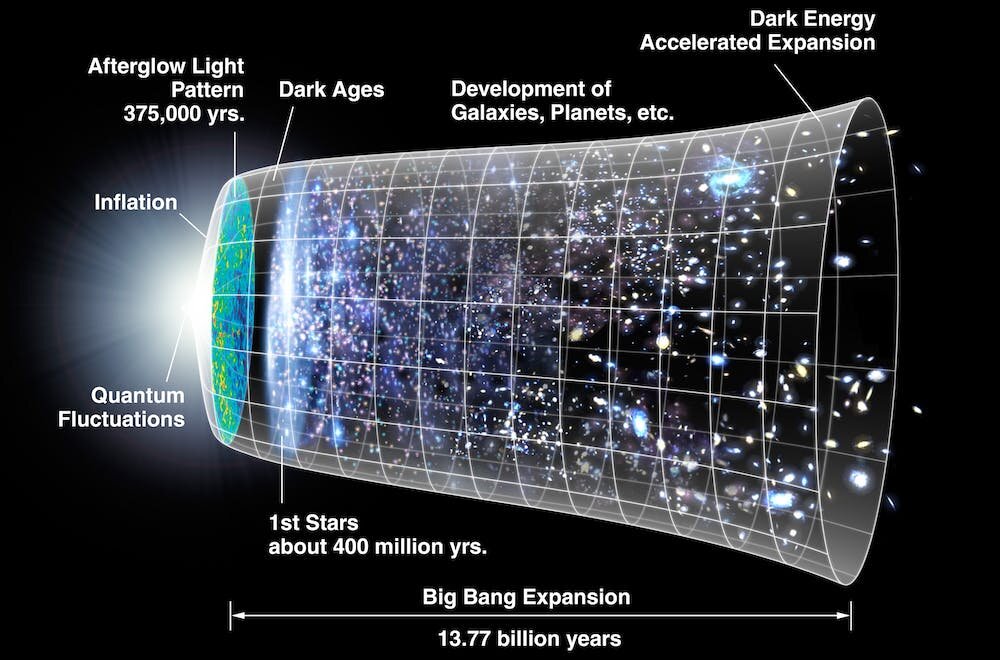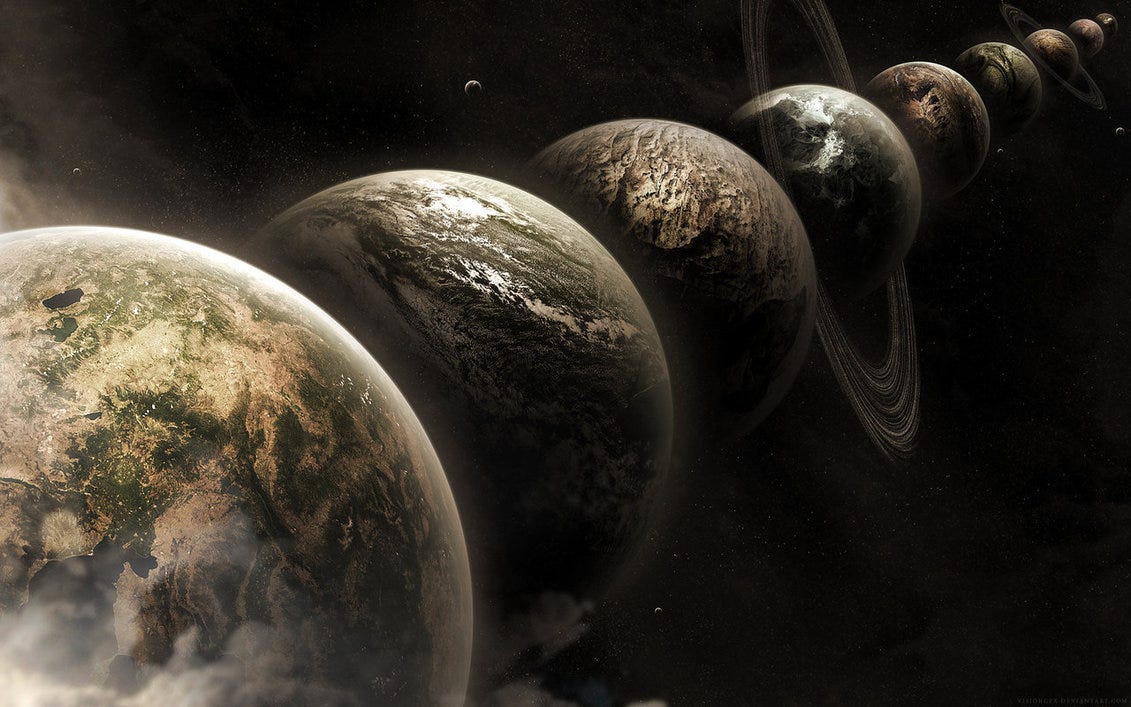By Penny Theodorakopoulou,
In recent years, the concept of a “multiverse” has drawn a lot of interest in both pop culture and scholarly discourse. What, though, is the multiverse exactly? And how can we understand this idea, particularly for individuals who have not studied physics or philosophy?
The idea of a multiverse, at its most basic level, is that there might be several universes, each with its own set of physical rules and characteristics. This concept has philosophical and scientific roots in many different traditions, including ancient Buddhist and Hindu cosmologies, as well as modern ideas of quantum mechanics and string theory.
Examining the intellectual foundations of the multiverse is one method to approach the idea. For instance, the concept of numerous universes or “world systems” was a prevalent element in ancient Hindu and Buddhist cosmologies. A hierarchy of worlds, each having distinct realms or planes of existence, was a common idea among these religions. The concept of a multiverse was linked to more general philosophical issues regarding the nature of reality and the connection between the human ego and the cosmos at large.

The beginning of the world: How is it related to Time and the multiverse?
The origin of the world is a subject that has been studied throughout history in a wide variety of philosophical and theological traditions. Many creation tales claim that a god or other supernatural being caused the world to exist. Contrarily, scientific theories propose that the Big Bang, an explosive event that took place roughly 13.8 billion years ago, was the start of the universe.
The idea of the multiverse implies the existence of several worlds, each with its own unique set of physical rules and characteristics, and is connected to the origin of the world. According to some hypotheses, our universe is merely one of many potential possibilities, and measuring something or observing something might just be a form of “selecting” one universe from a broader multiverse.

Is there a correlation between the multiverse and philosophy?
From a philosophical standpoint, the connection between the universe’s creation and the multiverse poses important issues regarding the nature of reality and the boundaries of human comprehension. What does the presence of numerous universes indicate about the existence of a greater power or cosmic order? How can the possibility that there are an unlimited number of universes that could exist, each slightly different from the others, be explained?
The origin of the world and issues surrounding the meaning or purpose of existence are intimately related in various philosophical and religious traditions. For instance, according to some creation myths, the world was made with a specific goal in mind, such as making it a place where people might live or expressing the will of God. Similar to this, some philosophical schools, like existentialism, contend that human beings are responsible for creating the meaning of life rather than that it is predetermined by the cosmos.
Similar to this, discussions regarding the nature of possibility and necessity have been connected to the idea of the multiverse in contemporary philosophy. Some philosophers, including David Lewis, have contended that there might be additional “modal realities” or alternate realities existing alongside our own. These hypothetical universes could be distinct from our own in a number of ways, such as by having different physical laws or historical occurrences. Therefore, the concept of a multiverse is just an expansion of the idea of numerous possible worlds.

The “relationship” between the multiverse and physics: Can philosophy “fit in” too?
The multiverse theory has been developed in physics as a means of explaining some of the most perplexing features of the quantum universe. Particles can “superposition,” or exist in several states or locations at once, according to the rules of quantum mechanics. In addition, according to quantum mechanics, witnessing or measuring a particle can “collapse” its superposition, causing it to enter a certain state.
Due to these concepts, some physicists have proposed the possibility of multiple universes, each with a unique set of physical laws and characteristics. According to this theory, our reality is merely one among numerous potential possibilities, and the act of observation or measurement may be nothing more than a method of “selecting” a specific universe from the greater multiverse.
The “many-worlds interpretation” of quantum mechanics, which postulates that there can be an endless number of parallel universes, each one branching out from the preceding one with every quantum event, is one of the most well-known hypotheses in the field of physics. According to this hypothesis, there could be a huge number of universes, each somewhat different from the others.
Naturally, the idea of a multiverse is still very speculative, and there is not much concrete evidence to back it up. However, a lot of physicists and philosophers are drawn to the concept of a multiverse because it poses important questions about the nature of reality and the boundaries of human comprehension.

Conclusion
The multiverse, the beginning of the world, and philosophy all have intricate connections. In the end, these ideas prompt serious queries about the nature of reality, the place of humans in the cosmos, and the boundaries of human comprehension. We might learn new things about some of the greatest mysteries of existence by investigating these questions. Ultimately, the questions that are raised about our place in the world and the nature of existence itself may be more significant than whether or not the multiverse exists. We might learn new things about some of the greatest mysteries of the universe and our own role in it by investigating the idea of the multiverse.
References
- James R. Johnson, Multiverse Assumptions and Philosophy, in Philosophy and Cosmology, Volume 20, 2018, ispcjournal.org, Available here
- Multiverse, wikipedia.org, Available here
- Is the multiverse physics, philosophy, or something else entirely?, astronomy.com, Available here
- The Multiverse And Eastern Philosophy, forbes.com, Available here
- The Multiverse Conundrum, philosophynow.org, Available here




